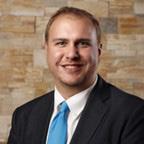




I hope that this issue of Raising the Bar will provide you with a moment to pause and consider our shared work before recent graduates, faculty, and law students begin frequenting your office (and inboxes) seeking support, information, and insights into the year’s bar results. Certainly, it is important to set aside time to purposely consider our work and the broader system in which our students and institutions move. Whether this is your first bar results cycle or your 25th, I hope that you will take time to consider this prompt: What are your beliefs about bar passage? And how might these beliefs, cultivated from your experience, be tested in research or programming?
The authors featured in this issue of Raising the Bar have pondered these questions and offered up thoughts and empirical insights in response. Dean Brian Gallini challenges us to consider the role and obligations of jurisdictions in attorney licensure. Provost Morris Ratner shares insights from his team’s empirical inquiry into bar success. And Professor Titichia Jackson asks us to consider our work with students and our working definition of success. Each of these articles summarizes a larger study or article that broadly tests whether what we believe about our legal licensure system and approach to licensure withstands the weight of inquiry.
I hope that you will take the time to reflect on your peers’ work highlighted in this issue and begin considering the inquiry you might wish to conduct. Know that AccessLex Institute ® is here to partner with you when you’re ready to take on that inquiry.
Joel Chanvisanuruk, M.P.A., J.D.
Senior Director, Programs for Academic and Bar Success
AccessLex Center for Legal Education Excellence ®
Visit the Senior Director’s SSRN author page
Visit the AccessLex SSRN page

Brian Gallini is Dean and Professor of Law at Quinnipiac University School of Law. The full version of this article can be found in 78 Ark L. Rev. 199 (2025).
The legal profession knows it has an access to justice crisis. It has known for a while. One side lacks a lawyer in approximately three-quarters of the twenty million civil cases filed across state courts every year. And those are the cases we know about; there are millions more Americans who have a legal problem but take no legal action to protect their interest.
On the one hand, we as a profession recognize the need to strengthen access to justice. Indeed, state supreme courts, bar associations, the American Bar Association (ABA), and the American Law Institute (ALI) have created various access to justice workgroups, committees, and task forces to address this wicked problem.
Despite committing all sorts of human capital to addressing the problem, we continue to embrace a licensure system that has persisted since the late 1800s. Sure, we might call it something new every few years — whether it’s the Uniform Bar Exam or now the NextGen Uniform Bar Examination — but the bar exam, no matter what we call it, relies on some mix of timed multiple choice questions, integrated question sets, closed book essays, or closed book performance tasks. That licensure method bears little resemblance to the practice of law, produces racially disparate results, and is shockingly expensive for law graduates to prepare for and take. Its opaque scoring practices alongside its rare administration — offered just twice per year — strengthens the idea that the modern bar exam operates more as a barrier than a measure of competence to practice law.
In 2023 alone, jurisdictions reported that 66,174 candidates sat for the bar exam. The overall pass rate, which includes first-time takers and retakers, was just 58%. This, of course, is nothing new; indeed, it’s always the case that some percentage of candidates for the bar exam will pass and some will fail. But the question is whether the best way to license attorneys is to continue to use an exam that bears little relationship to attorney skills amid an access to justice crisis, a declining attorney population, and the continuing need to diversify the profession.


A double-digit number of jurisdictions have begun to think differently about attorney licensure. Connecticut is not yet among them — but it should be. As a state facing one of the steepest declines in attorney population nationwide, alongside rising poverty and a growing access to justice gap, Connecticut is uniquely positioned to lead. Its “civil-Gideon” statute presents a compelling opportunity for the state to create a public service pathway to licensure. Civil Gideon “ refers to the idea that people who are unable to afford lawyers in legal matters involving basic human needs — such as shelter, sustenance, safety, health, and child custody — should have access to a lawyer at no charge .” Although the right exists for indigent felony defendants in criminal matters, it exists in just a handful of states — and a handful of circumstances within those states — in civil matters.
Connecticut is one of those jurisdictions — and it presents a compelling need to think differently about attorney licensure. In Connecticut, in 2023, there were 21,036 attorneys for a population of roughly 3.6 million citizens. That translated into 5.8 attorneys per 1,000 citizens. Within those numbers, the 9.8% poverty rate allowed just 3.5 legal aid lawyers per 10,000 people living in poverty. By 2024, Connecticut’s attorney population had fallen — significantly — to 18,028 attorneys, and the state’s capital has consistently been in the top twenty metro areas nationwide for lawyer demand.
Connecticut’s loss of more than 3,000 attorneys in a single year was the largest attorney decrease for any state in the country.
Meanwhile, poverty rose more than 40% from 2021 to 2022 due, in significant part, to the expiration of several federal programs. This confluence of a decreasing attorney population alongside an increased poverty rate has exacerbated access to justice in the state.
As Connecticut evaluates how to address its access to justice gaps, it’s reasonable to turn to Connecticut’s law schools, and to graduates from other law schools who sit for the Connecticut bar, for help. But as the data reflects, there is no cavalry coming to address the state’s access to justice crisis. Connecticut’s three law schools — Yale, Quinnipiac, and UConn — have shown steady growth in enrollment and bar exam participation since the pre-pandemic period, yet first-time bar pass rates have declined post-pandemic. While Yale contributes few graduates to the Connecticut bar, Quinnipiac and UConn have seen rising numbers of test-takers, though pass rates have dipped. Statewide, the trend mirrors this decline, with more graduates sitting for the exam but fewer passing. Despite these challenges, interest in public interest careers is growing both locally and nationally, with Connecticut law schools reporting a rise from 9.5% to 12.5% of graduates entering public service roles since the pandemic.
The question for Connecticut becomes: What to do with a growing interest from new law graduates in practicing public interest law and practicing in Connecticut as juxtaposed against Connecticut’s nationally leading decline in attorney population, a decline in post-pandemic first-time taker
bar pass rates, and a growing access to justice gap. This surge in civic-minded graduates presents a timely opportunity to align licensure reform with access to justice efforts.

I therefore argue that Connecticut’s civilGideon statute presents a compelling opportunity to think differently both about attorney licensure and strengthening access to justice. At present, Connecticut’s civil-Gideon statute provides a right to counsel to “income-eligible” tenants facing eviction. Since its launch in early 2022, Connecticut’s Right to Counsel (CT-RTC) program has expanded legal representation for tenants facing eviction in high-need zip codes, doubling representation rates and generating significant fiscal benefits — estimated between $17.6 million and $21.4 million across 2022 and 2023. And yet, staffing shortages alongside the fast pace of summary eviction proceedings have hindered full implementation. Independent evaluations
of the program have highlighted both the program’s impact and its limitations, recommending statewide expansion and stronger partnerships with law schools and service organizations. Despite progress, CT-RTC’s reach remains constrained by labor market challenges and limited attorney capacity.
In sum, Connecticut stands at a critical juncture: While interest in public interest law among new graduates is rising, the state faces a nationally leading decline in its attorney population, falling bar passage rates, and a widening gap in access to justice. Pairing the Connecticut Right to Counsel (CT-RTC) program with a supervised practice licensure pathway offers a strategic solution. Modeled after Oregon’s Supervised Practice Portfolio Examination (SPPE), this pathway would allow candidates to demonstrate competence through coursework, supervised legal service, and portfolio review — rather than a traditional bar exam.
By launching the CT-RTC pathway in the same zip codes where CT-RTC began, Connecticut could simultaneously strengthen tenant representation, expand its legal workforce, and create a more equitable, practice-ready route to licensure. With CT-RTC infrastructure already in place and growing interest among law graduates in public service, Connecticut is uniquely positioned to pilot a licensure pathway that is both scalable and immediately impactful. The infrastructure and momentum are already in place; what’s needed now is bold leadership to align licensure reform with the state’s commitment to justice.

Titichia Mitchell Jackson is an Assistant Professor of Law and Director of Academic Success and Bar Passage at Penn State Dickinson Law.
For decades, legal education has been defined by tradition — lecture-heavy instruction, cold calling, and grading systems that measure outcomes more than growth. While these practices have shaped generations of lawyers, they have also limited opportunities to rethink how students learn, adapt, and thrive. In my article, Embracing a New Approach to Academic Success: How the Adoption of a Growth Mindset Can Enhance Legal Education, I argue that the future of law school depends on shifting from a fixed mindset to a growth mindset, both in how we teach and how students engage with learning.
The global pandemic made this conversation urgent. When law schools pivoted overnight to “Zoom Law School,” the traditional model was disrupted. What initially felt like an obstacle became, for many institutions, an unexpected opportunity to experiment with new methods of teaching and advising. Faculty and students alike were forced to be flexible, vulnerable, and innovative — all hallmarks of a growth mindset. This disruption underscored a key truth: Legal education cannot remain fixed. To prepare students for both the bar exam and the practice of law, we must build environments that encourage resilience, adaptability, and self-reflection.


Psychologist Carol Dweck’s research on fixed versus growth mindsets frames much of this work. A fixed mindset assumes intelligence and ability are static, leading students to equate their worth with grades and external validation. A growth mindset, by contrast, treats intelligence as malleable and learning as an evolving process. Students who adopt this perspective measure success not only by outcomes but by effort, strategy, and persistence.
In the law school context, this distinction is profound. Students who cling to fixed patterns may resist new study methods, avoid risk, and fear failure. Meanwhile, students who embrace a growth mindset view challenges as opportunities to strengthen skills in case briefing, analysis, and time management. Faculty and advisors play a critical role in shaping these perspectives: When we normalize struggle as part of the learning process, we empower students to redefine what success looks like.
Traditional classroom methods have their benefits — community building, accountability, and face-to-face mentorship — but they also present real barriers. Cold calling can provoke anxiety rather than engagement. Reliance on summative assessments may deprive students of the chance to learn from mistakes in real time. And rigid approaches to instruction often neglect the diversity of learning styles represented in today’s classrooms.
By contrast, classrooms rooted in a growth mindset prioritize formative assessments, varied teaching strategies, and inclusive practices. Technology can enhance this shift: Online polls, quick-response surveys, and realtime feedback allow students to test understanding without the high stakes of a final exam. These tools not only improve engagement but also signal to students that learning is iterative, not static.
Adopting a growth mindset extends beyond pedagogy. Academic advising, for example, can be reimagined as a process that begins with assessing student mindset. Advisors who encourage accountability, reflection, and resilience help students recognize that missteps are not failures but stepping stones toward growth. Mentorship, too, becomes more impactful when faculty and peers model the very flexibility and persistence they hope students will cultivate.
At the institutional level, law schools that embrace growth-oriented practices create cultures of empathy and innovation. The pandemic highlighted the need for institutions to be responsive to student needs — offering flexible course delivery, creating safe and inclusive spaces for dialogue, and rethinking outdated systems that privilege tradition over progress. When institutions adopt this approach, they not only prepare better students but also nurture future lawyers who can adapt to a rapidly evolving profession.
The question for legal educators now is simple: Are we willing to rethink how we measure success? A growth mindset does not diminish rigor; instead, it reframes it. By celebrating effort, resilience, and adaptability, we can support students holistically and better prepare them for both the bar and the practice of law.
As I argue in the article, the battle for academic success does not begin with teaching students how to brief a case or issue spot. It begins with teaching them how to think about learning itself. Growth mindset is more than a theory — it is a call to evolve legal education into a space that is flexible, inclusive, and sustainable.
The future of law depends on how we answer that call.



Morris Ratner is Provost and Academic Dean at University of California College of the Law, San Francisco. This is a summary of an article he wrote with Stephen N. Goggin, Stefano Moscato, Margaret Greer, and Elizabeth McGriff: Determinants of Success on the Bar Exam: One Law School’s Experience 2010–2023 , 73 J. Legal Educ. 539 (2025).
AccessLex Institute ® funded a comprehensive outcomes assessment of the changes that UC College of the Law, San Francisco (“UC Law SF,” formerly “UC Hastings”) made to its academic program to increase its first-time bar pass rate by 30+ percentage points.
UC Law SF assembled an anonymized dataset that included information about 14 years of graduates (4,726 students), including demographic information, entering metrics, curricular choices, co-curricular program participation, law school academic performance, and post-graduation bar study, such as the percentage of commercial bar preparation course completion and completion of practice essay questions.
Even with this rich dataset, our team could explain only about half the variation in outcomes during the study period. The biggest increase in first-time bar pass rates in UC Law SF’s history occurred on the July 2019 administration of the California Bar Exam, after a period of significant academic program reform, but before the change in California’s cut score from 1440 to 1390, and before the pandemic.
Of the pre-graduation interventions UC Law SF made, the most effective resulted from a paradigm shift: UC Law SF improved bar outcomes after it moved from an academic skills development model focused on the most at-risk students based on entering metrics or law school GPA (LGPA) to a model of pervasive, integrated, and iterative skills instruction aimed at all students. This included redesigning the 1L curriculum to add a unit of academic credit to one doctrinal class in each semester to teach basic academic success skills and provide students multiple formative assessments with individualized feedback. Other interventions included: (1) requiring and encouraging students to take upper-division bar subject classes, with each additional bar subject class taken associated with a three percent increase in the probability of first-time bar passage in the post-2016 period; and (2) offering for-credit bar skills classes in the 3L year focused on improving MBE performance and on overall bar test-taking. The impact of these interventions varied by law school GPA band.

UC Law SF’s postgraduation bar success interventions proved to be particularly positively impactful given the strong connection between the percentage of commercial bar preparation courses that graduates completed and first-time pass rates. The most effective of these interventions included the following: (1) tracking individual student performance in postgraduation commercial bar preparation courses, and advising and coaching individual students to complete a greater percentage of the assigned coursework; (2) offering supplemental law school-administered practice bar essay feedback during bar study; and (3) advising students to effectively practice MBE test-taking. Combined with LGPA, the percentage of completion of postgraduation commercial bar course and regular postgraduation practice on bar essays and MBE questions turned out to be powerful predictors of first-time bar passage. Post-graduation course completion was associated with increases in the probability of first-time bar passage of up to 30%-43%, depending on the course, and each practice essay done over the summer was associated with a roughly 0.4% increase in the probability of bar passage.
Finally, our findings challenged several of the assumptions we held at the time we started our research. For example, individual specialist skills faculty anecdotally reported success working with individual students in one-on-one sessions, but students who frequently used that resource had worse outcomes. Conversely, student educational experiences that one might not necessarily expect to correlate with success on the bar exam were associated with higher pass rates, including Moot Court (1.1% increase in probability of first-time bar passage for each unit of academic credit) and clinical fieldwork (0.7% increase in probability of bar passage associated with each unit of fieldwork). Academic program designers should be careful when considering our findings because some measured variables may serve as proxies for student engagement and effort generally.
Led by our Center for Legal Education Excellence ®, our Building Bar Skills Initiative expands upon AccessLex Institute’s existing bar preparation offerings by supporting law faculty tasked with integrating NextGen Uniform Bar Exam (NextGen UBE) skills into their classrooms and student learning outcomes. AccessLex Institute’s Bar Skills Modules are a series of easily adapted Modules, aligned with bar-tested doctrinal subjects. Bar Skills Modules introduce law students to the skills tested on the NextGen UBE through formative assessments and exercises. Developed by Module Building Teams comprised of law school skills and doctrinal staff and faculty, each set of Modules was utilized in a classroom setting and updated based on law student response and performance. Each Bar Skills Module set includes associated skills-based student learning outcomes, professor’s notes, assessment exercises and rubrics, and model answers to support easy adoption by law faculty and instructors.
Bar Skills Modules are available at no cost to faculty and instructors at AccessLex Member Law Schools . If you haven’t already, you can request your free access to the Bar Skills Modules here .
The third cohort of Module Building Teams are doctrinal and skills faculty and staff drawn from six different law schools. These teams are developing and testing innovative curriculum units that, upon completion, will complete a catalog of Bar Skills Modules, covering all of the doctrinal subjects tested on the NextGen UBE.

ASHLEY LONDON
Assistant Professor of Law, Director of Bar Studies

DAVID NOWS
Assistant Professor of Law, Director of J.D./M.B.A. Program and Business Essentials Micro-Credential Program

WENDY COUTURE
Professor

JOHN HINTON
Director of Low-Income Tax Clinic

BRENDAN T. BEERY
Professor

BRAD CHARLES
Professor

ANNE ALEXANDER
Director of Legal Research and Writing, Teaching Professor of Law

RIGEL OLIVERI
Professor

BENJAMIN COVER
Associate Professor

GEOFFREY HEEREN
Professor


CARRIE SANFORD
Associate Teaching Professor, Director of Academic Success

TERRY PRICE
Associate Teaching Professor, Executive Director of Graduate Education, Interim Associate Dean of Students
RICHARD WAUGAMAN
Clinical Director, Gailor Family Law Litigation Clinic


SHA HINDS GLICK
Associate Dean of Student Affairs and Academic Success
APRIL MILBURN-KNIZNER
Associate Director of Bar Studies and Assistant Professor of Legal Skills

KATHERINE NORTON
Associate Professor, Director of Clinical Legal Education and International Programs
Subjects designated with a (*) will be drafting multi-subject Modules, with the named subject as the leading topic for their Modules.
• LexCon ’25 Financial Capability and Student Success Conference (November 5–7)
• Association for the Study of Higher Education Annual Conference (November 12–15)
• Association of American Law Schools Annual Meeting (January 6–9, 2026)
• American Educational Research Association Annual Meeting (April 8–12, 2026)
Please email RTB@accesslex.org about
• Seth Chandler, Study Mode, Socratic AI, and the Future of Legal Education, AI for Legal Educ. (July 29, 2025).
• Comm. on Legal Educ. and Admissions Reform, Report and Recommendations (2025).
• Brian Gallini, Licensure as Pathway, Not Barrier, 78 Ark. L. Rev. 199 (2025).
• Julianne Hill, ABA Legal Ed Council Proposal to Increase Experiential Learning Credit Requirement Faces Pushback , ABA J. (July 17, 2025).
• Anne G. Johnson, Ready or Not, It Is Time to Prepare Students for Legal Research on the NextGen UBE Bar Exam, Law Libr. J. (forthcoming 2025).
• Deborah J. Merritt, Experiential Education, Law Sch. Café (July 5, 2025).
• Karen Sloan, States Should Consider Bar Exam Alternatives, Chief Justices Say, Reuters (July 30, 2025).
Please email RTB@accesslex.org with recent and forthcoming bar-related publications, posts, and podcasts to be included in future issues of Raising the Bar
• AccessLex Resource Collections
• Analytix by AccessLex ®
• Legal Education Data Deck
• AccessLex ® Law School Scholarship Databank
• AccessLex ® Student Loan Calculator
• MAX by AccessLex ®
• AccessLex Bar Success Intervention Grant Program
• AccessLex Bar Success Research Grant Program
• American Association of Law Libraries (AALL)
• Bar Exam Success Analyses Program
• Professionals in Legal Education Developing Greater Equity (PLEDGE) Initiative
Please email RTB@accesslex. org with information about resources for faculty and students in your jurisdiction.
• ABA Bar Information for Applicants with Disabilities
• AccessLex Building Bar Skills Modules
• CALI Lessons
• JDEdge by AccessLex ®
• NCBE Bar Admission Guide
• NCBE Bar Exam Fundamentals for Legal Educators
• NCBE's The Bar Examiner
• Raising the Bar Past Issues
If you would like to see your work, research, or thoughts presented in Raising the Bar, we welcome hearing from you at RTB@accesslex.org .
DISCLAIMER:
Raising the Bar serves as a forum for thoughtful, respectful community dialogue about the bar exam. The opinions and research of contributors do not necessarily represent the views of and are not endorsed by AccessLex Institute.
Raising the Bar
Fall 2025
Volume 8, Issue 4
Joel Chanvisanuruk, Senior Editor
Fletcher Hiigel, Managing Editor
AccessLex Institute ®, in partnership with its nearly 200 nonprofit and state-affiliated ABAapproved member law schools, has been committed to improving access to legal education and to maximizing the affordability and value of a law degree since 1983. The AccessLex Center for Legal Education Excellence ® advocates for policies that make legal education work better for students and society alike, and conducts research on the most critical issues facing legal education today. The AccessLex Center for Education and Financial Capability ® offers on-campus and online financial education programming and resources to help students confidently manage their finances on their way to achieving personal and professional success. AccessLex Institute is headquartered in West Chester, PA.